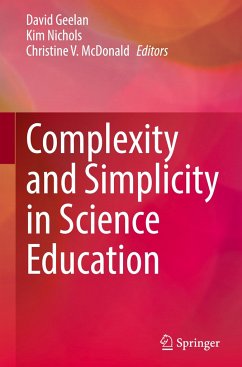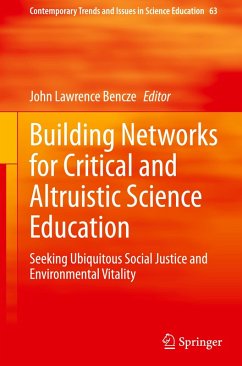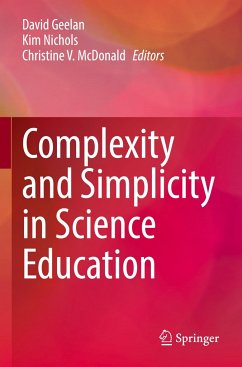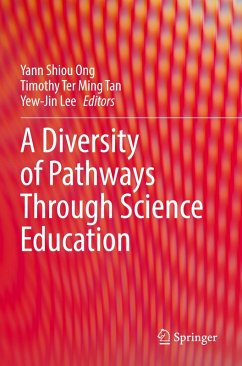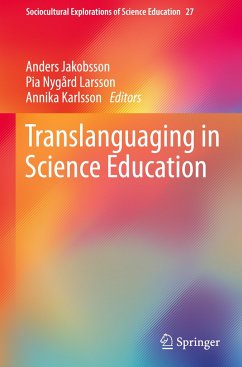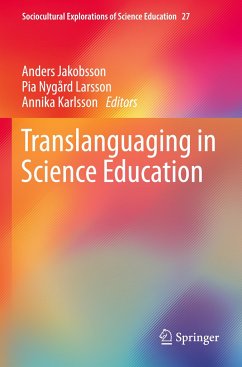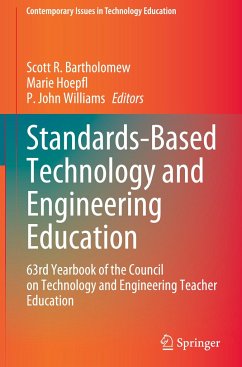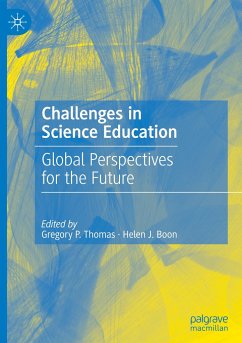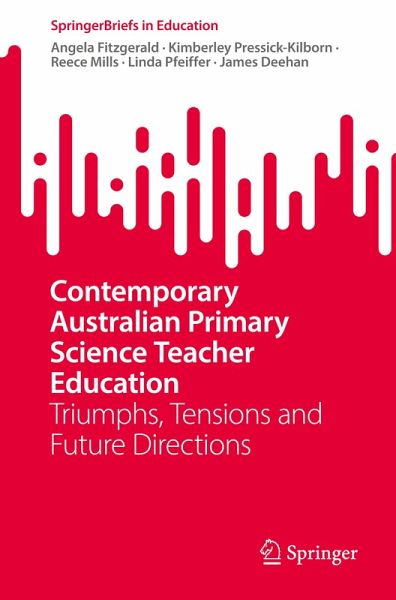
Contemporary Australian Primary Science Teacher Education
Triumphs, Tensions and Future Directions

PAYBACK Punkte
19 °P sammeln!
This book provides an evidence-based response to how 'classroom-readiness' translates into the preparation of future teachers of science. It juxtaposes contemporary understanding of programming and practices in initial teacher education in an Australian context against international narratives. Through this, this book shifts the understanding of primary science education from a deficit model to one that critically examines, challenges and contest what is happening in this space, and why. It proposes problems of practice in primary science teacher education and then draws on these provocations ...
This book provides an evidence-based response to how 'classroom-readiness' translates into the preparation of future teachers of science. It juxtaposes contemporary understanding of programming and practices in initial teacher education in an Australian context against international narratives. Through this, this book shifts the understanding of primary science education from a deficit model to one that critically examines, challenges and contest what is happening in this space, and why. It proposes problems of practice in primary science teacher education and then draws on these provocations to provide insights into possible solutions.



